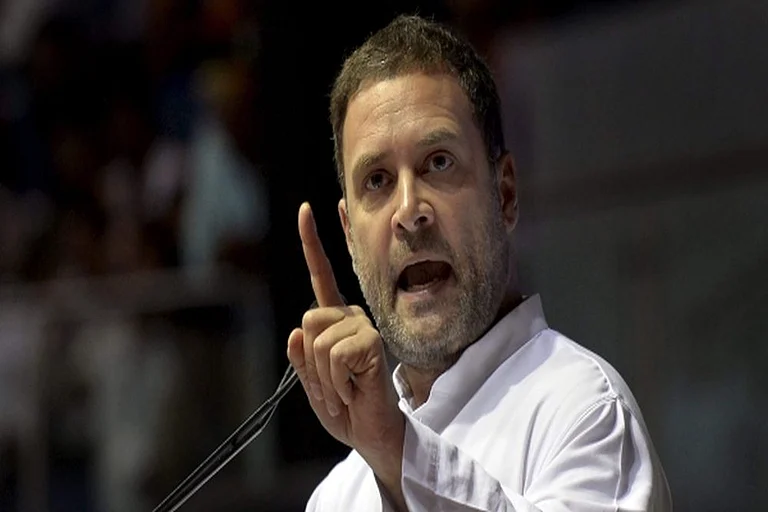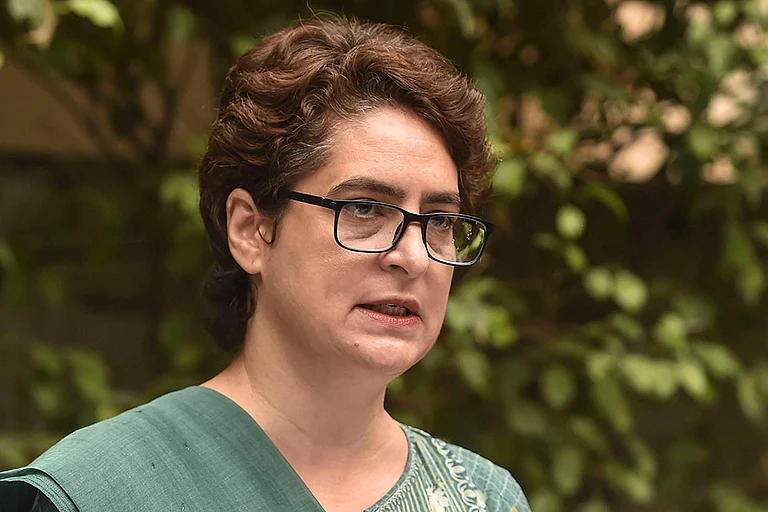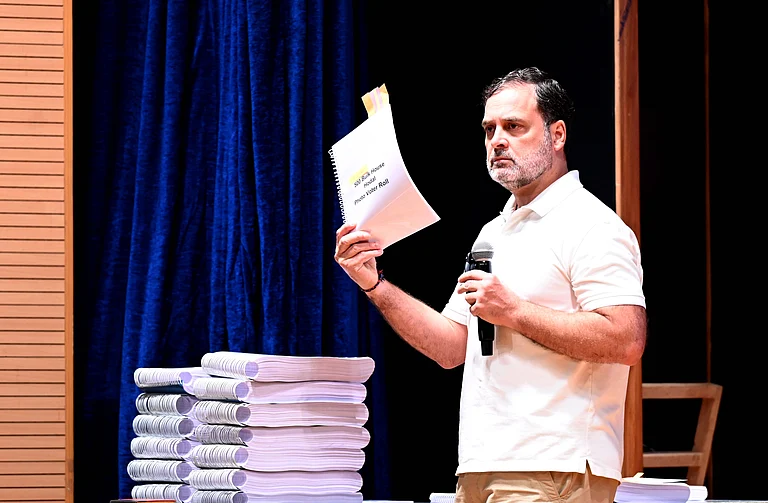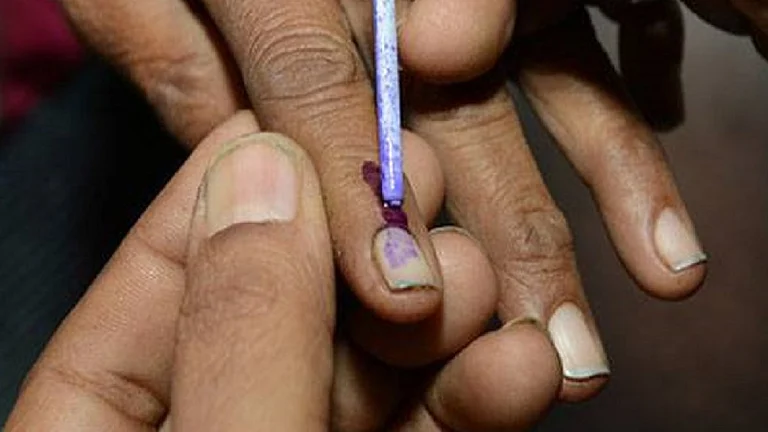
There is a disconnect between how the Congress Party perceives democracy and how voters in Bihar interpret it
Drawing lessons from the Bihar election verdict, the Congress needs to reshape its future political campaigns
The Congress needs to build an organised, dedicated cadre to communicate its message to voters
Elections are the cornerstone of democratic regimes, ensuring that the people’s will is represented. In contemporary democracies, even leaders with autocratic and authoritarian tendencies often rise to power by winning elections. Populist leaders have learnt to perform this “minimalist” Schumpeterian script of contesting elections in a democracy. One reason for this change in strategy, as Karl Popper explains, is that this minimalist system of elections for establishing an inclusive “open society” facilitates change in government without resorting to violence and bloodshed. Furthermore, it enables them to garner the support of “the people” and govern through the legitimate consent manufacturing procedure of elections.
In a systematic transformation like this, does it make sense for Rahul Gandhi, the Leader of Opposition in India, to run his election campaigns by repeatedly challenging this very consent-manufacturing institution of democracy? My fieldwork in Patna reveals a disconnect between how the Congress Party perceives democracy and how prospective voters interpret it. The party elites ran the Bihar election campaign on slogans like “Vote Chor Gaddi Chod” and “Loktantra Bachao” while simultaneously challenging the entire SIR process and portraying other actions by Election Commission (EC) as a complete breakdown of Indian democracy. However, for people, this narrative of the procedural undoing of democracy didn’t seem to hold much weight. For them, issues like duplicate voter ID cards are nothing new, but rather a technical and mechanical aspect of the democratic process.
Counterproductively, this narrative diverted the party’s focus away from the substantive issue-based version of democracy that mattered more, as evidenced by the results, where Nitish Kumar achieved a “social referendum.” Additionally, it made the Congress a less serious candidate for voters as they are contesting in the same terrain they are challenging. Drawing lessons from the Bihar election verdict, the Congress needs to redraw the boundaries of discourses that shape its future political campaigns. The reinvention cannot be based solely on rhetoric that challenges the electoral system and other democratic institutions, as they are themselves stakeholders in the same system.
The Congress Campaign
The entire Congress campaign gained momentum in the wake of the Voter Adhikaar Yatra, where Gandhi challenged the discrepancies and changes in the electoral rolls, as well as the favoritism exhibited by the Election Commissioners, and how the elections were being manipulated and stolen across the nation. After the yatra, I attended the Congress Working Committee (CWC) meeting held on September 24, 2025, at the Sadaquat Ashram in Patna. There was unison in the voices of the leadership in bringing to focus the dire situation of Indian democracy under the Bharatiya Janata Party regime, and how this moment is as important as the time when India attained independence by fighting the colonial forces.
A Congress spokesperson explained the reason for organising the CWC, “We need to save democracy and cannot wait anymore, and where else can we organize such a movement than in Patna, the land of struggles, resistance, and revolutions. We need to organise like the Quit India Movement under the leadership of Mahatma Gandhi and continue to make people aware of the atrocities under the BJP, as Rahul Ji did during the Vote Adhikaar Yatra.” A similar narrative was echoed in the official statements of other senior leadership at the meeting, like AICC Bihar in-charge Krishna Allavru, who called Bihar the centre of national politics where the Congress was fighting “the second war of Independence”.
On October 23, 2025, in the reception hall of Hotel Maurya, the Mahagathbandhan organised a press conference, and senior Congress leader Ashok Gehlot announced Tejaswi Yadav as the CM face of the INDIA alliance. I listened to him state how India is experiencing democratic erosion, and the people should support the alliance in its reversal and fighting the forces that are hell bent on taking the country towards autocracy. This argument was cemented further just one day before the first phase of voting in Bihar, when Rahul Gandhi dropped the hydrogen bomb. He presented ‘The H Files’ alleging the nexus of the BJP and the EC involved in electoral fraud in the Haryana elections. The campaign narrative gained further momentum among the party elites as a movement to save democracy, and Bihar presented the perfect opportunity to do so.
With the declaration of election results in Bihar, reducing the Congress to a single-digit party, only the ‘Vote Chori’ campaign narrative could be used as a shield by the party elite for the abysmal performance. Therefore, along with thanking the voters, Rahul Gandhi asserted that “this result in Bihar is truly surprising. We could not achieve victory in an election that was not fair from the very beginning.” However, the bigger question is whether there can be another reason for this defeat. The allegations that incumbents are manipulating the system in their favour to win elections might hold some weight, but do they resonate with voters?
The Disconnect Between the Political Elite and Voters
My interviews with prospective voters show a struggle on their part to connect with the ‘Vote Chori’ campaign. It doesn’t seem to play a dominant role in forming their perspective. Although an INDIA alliance supporter, a chai-wallah (tea-seller) in the Danapur area summed it up pretty well. When asked about his views on electoral manipulations, voting, and how he understood democracy, he instantly replied with a question, “Madam, is it the first time that things like these are happening? (Without waiting for my response, he continued bombarding questions). Who cares if some people have duplicate voter IDs? This is not the first election that they have had duplicates. Were the booths not captured before? Were names not missing from lists? Were people not prevented from casting their votes? Have you not heard that any woman from your village, wearing a ghunghat (veil), has voted twice? Tactics and strategies like these have been a part of politics since time immemorial. I support change [implying his support for the alliance] because I want better education and employment opportunities for my children.”
Another respondent was a vegetable seller whom I saw bringing his cart to the side of the road and getting deeply engrossed in observing the CPI(ML) candidate during his jan sampark public meeting in Phulwari. I asked him, “What is a significant issue for him in this election?” He answered, “Whosoever will make the conditions of my neighborhood better, pointing me to the potholes and the garbage lying bare on the road”. When I asked what he thinks about the SIR process and the ‘Vote Chori’ campaign of Gandhi, he hesitantly said, “I didn’t face any issues, and one of my relatives’ names was initially cut, but then he filled out a form, and the name was added. I don’t think anyone who wanted to get their name added was stopped. It’s a different story for those who didn’t approach the officials or who weren’t here. But that won’t affect elections; ultimately, anyone who wants to vote will be able to vote. I personally think Gandhi is wasting time on it. People here care about development, he should talk about that if he wants to be taken seriously…”
Some respondents who were BJP or JD(U) supporters openly mocked the campaign strategy, which is no surprise, however, their reasoning had resonance even among supporters of the alliance. A rickshaw commented on the Congress’ campaign narrative with a smirk, “How can they keep destroying the sanctity of the election process each day and also contest at the same time? If they truly believe the system is rigged, why don’t they boycott it?”
Since the 2024 national elections, the larger discourse built by the Congress and Rahul Gandhi around preventing democratic backsliding and challenging the procedural mechanisms of elections has put the party in a “Catch-22” situation. By competing in the very game whose legitimacy they are questioning, it works as a double-edged sword, hurting them more than it supports. Just like electoral bonds, duplicate voter IDs didn’t seem to bother the voters, as it wasn’t something that was happening for the first time. Political parties accepting money through bonds or having a second voter ID is something people are nonchalant about; for them, it’s a part of politics.
Saving democracy and the constitution might have struck a chord for some voters during the 2024 national elections, particularly in response to the “Abki Baar, 400 Paar” campaign of the BJP, because it put a seed of doubt in the minds of people about what the party would do if it achieved high numbers. The decision to continue the same campaign in the Bihar elections backfired for the Congress, as their entire focus was on questioning the procedural mechanisms of elections, while they ran the risk of losing out on the substantive aspects of democracy and failing to connect with voters on the ground. In the future, the Congress needs to frame its campaign around a stronger ideological message grounded in the ideals of substantive democracy and an organised, dedicated cadre to communicate that message to emerge from these prolonged periods of losses.
(The author is a PhD candidate at the Department of Sociology, Yale University, New Haven, USA)





















